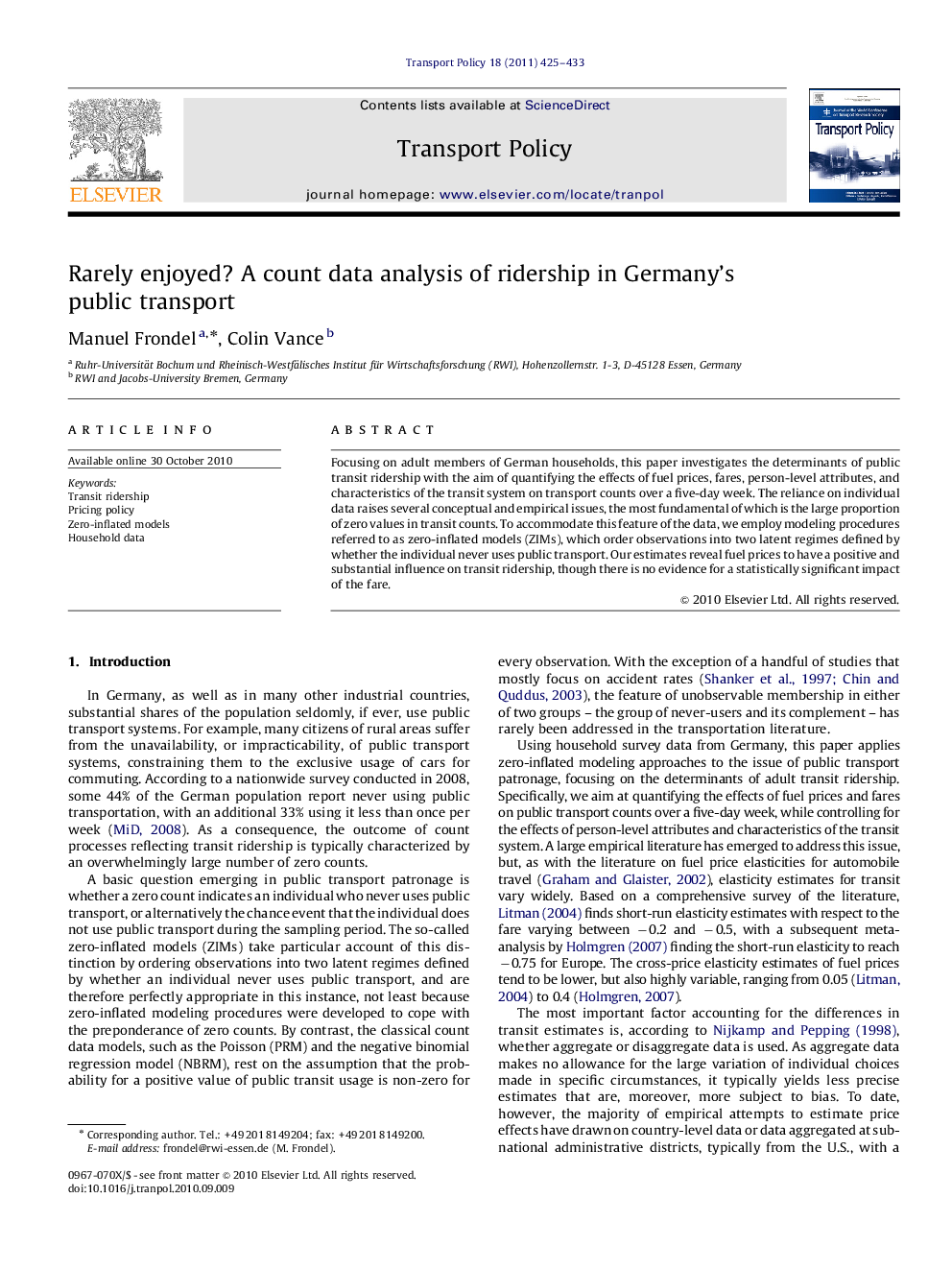| Article ID | Journal | Published Year | Pages | File Type |
|---|---|---|---|---|
| 1065469 | Transport Policy | 2011 | 9 Pages |
Focusing on adult members of German households, this paper investigates the determinants of public transit ridership with the aim of quantifying the effects of fuel prices, fares, person-level attributes, and characteristics of the transit system on transport counts over a five-day week. The reliance on individual data raises several conceptual and empirical issues, the most fundamental of which is the large proportion of zero values in transit counts. To accommodate this feature of the data, we employ modeling procedures referred to as zero-inflated models (ZIMs), which order observations into two latent regimes defined by whether the individual never uses public transport. Our estimates reveal fuel prices to have a positive and substantial influence on transit ridership, though there is no evidence for a statistically significant impact of the fare.
Research highlights►Fuel prices to have a positive and substantial influence on public transit ridership. ►Urban form is also a strong correlate of ridership. ►There is no evidence for a statistically significant impact of the fare on ridership. ►Females are more dependent on public transit than males. ►However, females and males show the same responsiveness to changes in fuel prices.
